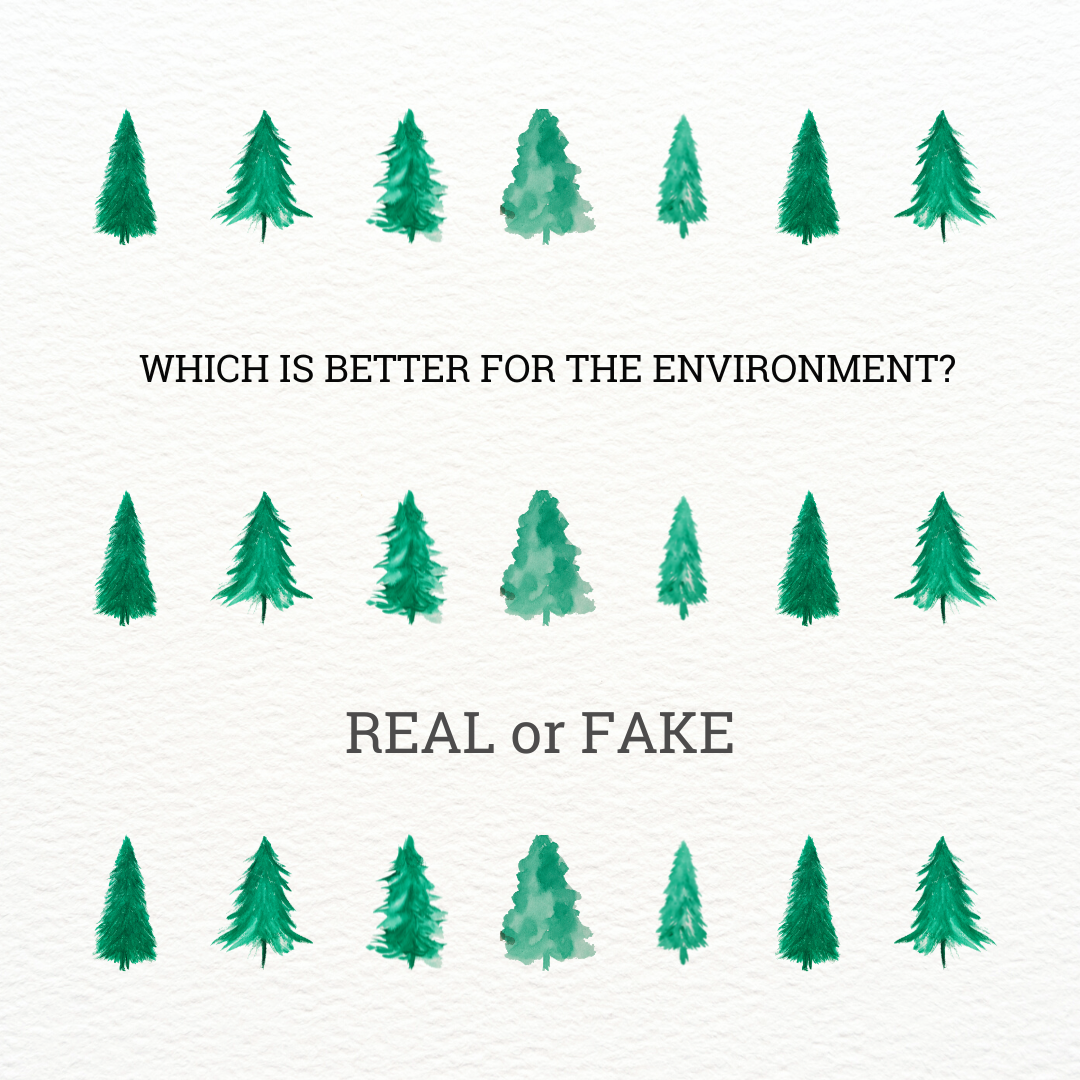‘Tis the season once again, where things are merry and bright. There is no doubt that many people have already begun their annual holiday traditions of gifting, traveling and decking the halls with festive decor. It is well accepted that the holidays are a time of indulgence, in every aspect of the word, from food, gifts and spending. However, as climate related events are increasingly sparking coverage across the US each year, consumers may be rethinking their habits, specifically how their actions can result in less waste, energy and resources overall.
As more light is being shed on the importance of conscious consuming habits, people are re-evaluating their decision to opt for a real or fake Christmas tree. This begs the question, are real or artificial Christmas trees better for the environment?
While there are both pros and cons for real and artificial trees, the answer depends by situation.
To paint a complete picture of this debate we’ve outlined some common questions that people may have and addressed them below.
Isn’t it bad for the environment to cut down Christmas trees? (Yes and No)
- Most Christmas trees are cut and cultivated from special farms that employ responsible methods for growing and harvesting these trees. These trees can be compared to vegetables harvested for produce. They are sometimes grown on land that is unsuitable for other crops and after being cut, farmers plant seedlings to replace those that were cut for future seasons.
- Additionally, these trees help absorb carbon from the atmosphere until the moment that they are harvested.
- Cutting these trees and making space for new seedlings is integral to the maintenance of these farms.
- However as with any popular commodity produced on a large scale, there are big productions related to the movement and transportation of trees. Some Christmas trees are transported using large trucks or helicopters, thus adding to their total carbon emission output.
- Sadly, not all Christmas trees have the same impact, some are taken from important forests instead of specialized farms which can negatively affect local wildlife and ecosystems.
Isn’t it better to reuse a Christmas tree instead of buying a new tree each year?
- While there is an economical value in purchasing a reusable tree, most artificial trees are made using PVC plastic and metals that are nearly impossible to recycle and generally end up polluting landfills. Not to mention, most fake trees are manufactured from China which results in high carbon emissions considering the energy required to ship and make these items.
- Unless you opt for a high quality tree that can be reused for several years, having a real tree has a significantly smaller carbon emission output.
Won’t a real Christmas tree also end up in the landfill after the holidays?
- You can avoid throwing away your tree by utilizing your local tree recycling program. Many cities and states have adopted curbside recycling programs and repurpose old trees as mulch, lumber or fertilization for crops or land. However it is imperative that trees are recycled while these programs are still available during the season.
The iconic Christmas tree is a hallmark of many traditions and for many people, Christmas simply would not be the same without a tree. When thinking about real and fake varieties, there are several factors to consider when selecting the “greenest” option. How far the tree traveled to get to you, if the tree is recycled or thrown in the trash or how long the tree is reused for.
When considering all these factors we recommend purchasing a real tree. Specifically a tree harvested from a local farm and responsibly recycled after usage. There’s no doubt that a real tree offers a sense of authenticity that is unmatched by an artificial one. Buying a local tree support local farmers, economies and their sustainable farming methods.
However if you elect to get an artificial one this season, we recommend one that is domestically produced and of great quality so it can be reused for several years.
Happy Holidays,
Team Mediclo



Leave a comment
This site is protected by hCaptcha and the hCaptcha Privacy Policy and Terms of Service apply.